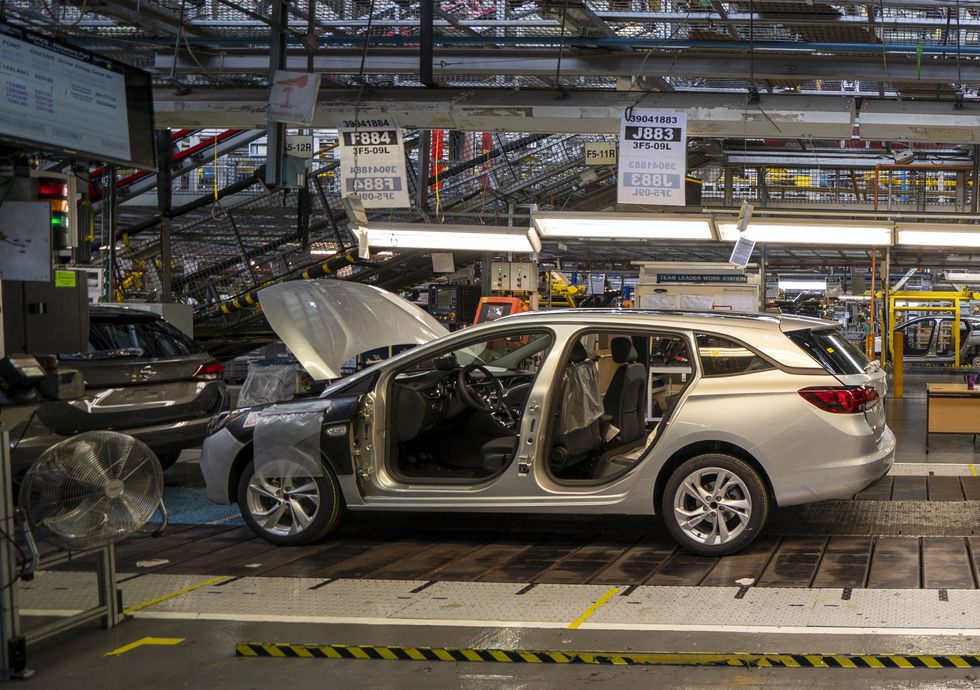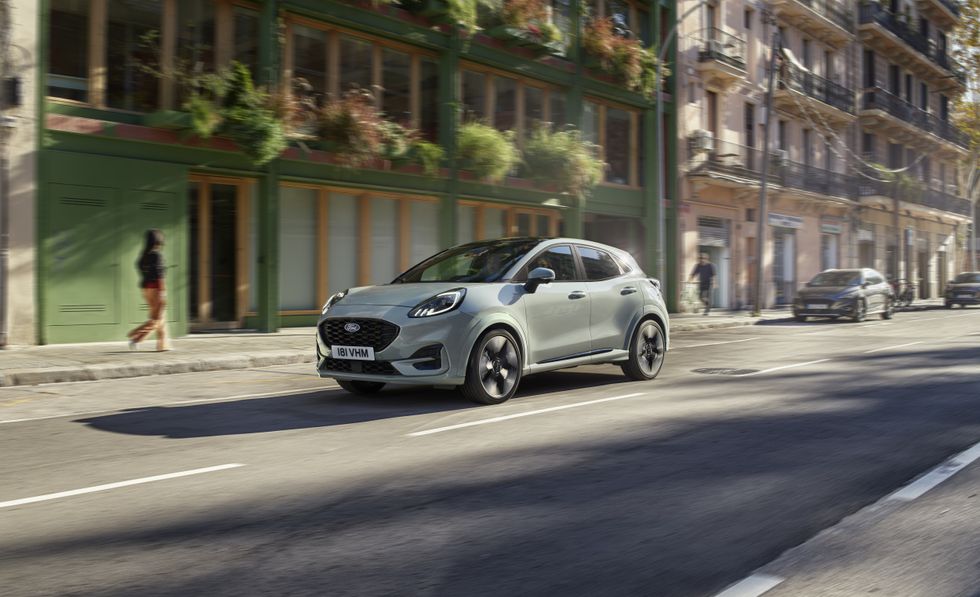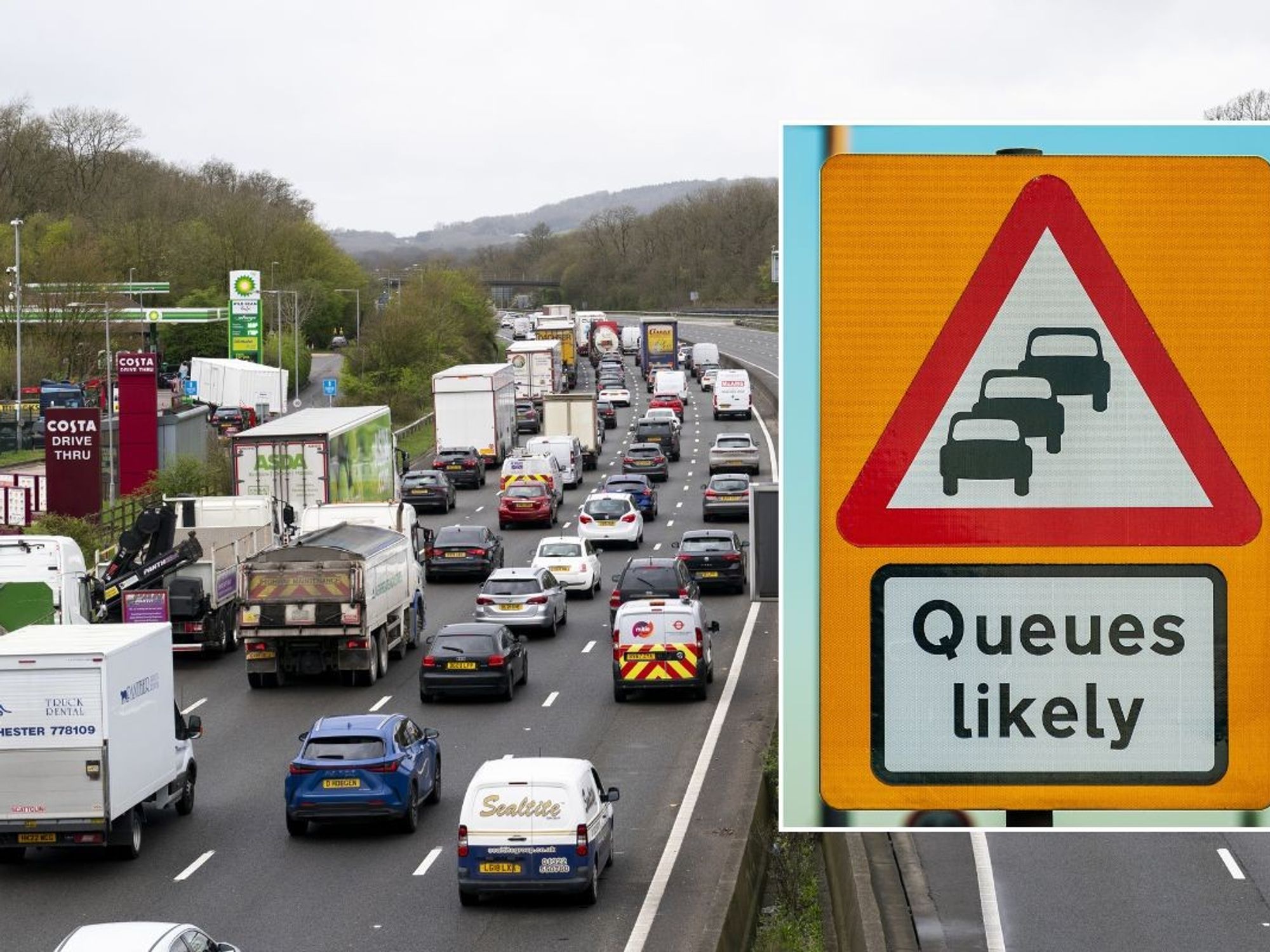The majority of new EV registrations this month came from fleets
GETTY
'More people than ever are buying and driving EVs but we still need the pace of change to quicken'
Don't Miss
Most Read
Trending on GB News
Industry predictions for the number of electric vehicles sold in the UK this year have been downgraded as a result of falling demand.
New data from the Society of Motor Manufacturers and Traders (SMMT) found that 147,517 new cars were registered in July, with 27 per cent of these being battery electric.
A new forecast estimates that pure electric vehicles will have an 18.5 per cent market share this year, a drop compared to April when the figure was expected to be 19.8 per cent.
Projections around how many new cars will be registered this year have also fallen, from around 1.984 million down to 1.968 million.
Do you have a story you'd like to share? Get in touch by emailingmotoring@gbnews.uk

The UK has seen two straight years of growth for the new car market
PADespite the concerns around electric vehicles, July market the 24th consecutive month of year-on-year growth, with a 2.5 per cent increase compared to the same time last year.
The market share of petrol vehicles has fallen 5.9 per cent year-on-year, while diesel has dropped almost 22 per cent, evidence of changing habits for British drivers.
Mike Hawes, chief executive of the SMMT, said: "Weakening private retail demand, however, particularly for EVs and despite generous manufacturer discounts, is the overriding concern.
"More people than ever are buying and driving EVs but we still need the pace of change to quicken, else the UK’s climate change ambitions are threatened and manufacturers’ ability to hit regulated EV targets are at risk."
He highlighted the importance of new number plate changes launching in September and called on the Government to boost incentives and infrastructure.
There are fears that manufacturers will miss objectives included in the Zero Emission Vehicle mandate, which required at least 22 per cent of new cars this year be electric.
This threshold will rise annually, reaching 80 per cent of cars in 2030 and 100 per cent of cars and vans in 2035.
Manufacturers who fail to embrace these figures and fall short of the targets could face a £15,000 fine per polluting vehicle sold above the limits.
However, these measures could change if Labour follows through on its pledge to reinstate the 2030 deadline of petrol and diesel vehicles, currently set for 2035.
The data also showed that the Kia Sportage was the best-selling vehicle in July with almost 4,000 registrations, followed by the Nissan Qashqai, Ford Puma, Volvo XC40 and Volkswagen Golf.
Reacting to the data, David Borland, UK and Ireland automotive leader for EY, said: "The UK is currently on track for around two-thirds of this year’s new car registrations to be made up of fleet sales, which is a less profitable channel for automakers and a significant shift from historical norms where fleet would be closer to half of the market.
"This represents yet another financial challenge facing the automotive industry that will continue to impact strategic decisions on channel mix."
LATEST DEVELOPMENTS:

The Ford Puma remains the best-selling new car in the UK this year
FORDSimilarly, Lisa Watson, director of sales at Close Brothers Motor Finance, highlighted the importance of the ZEV mandate to bring more electric vehicles to the market and help drivers switch for cheaper costs.
She added: "The high upfront cost of EVs and the lack of affordable options continues to act as a barrier for motorists contemplating the switch from petrol and diesel cars, and further investment is required to bring the charging infrastructure up to scratch."
Data from CBMF found that an overwhelming majority (92 per cent) of drivers who have transitioned to electric said they would purchase another one.








